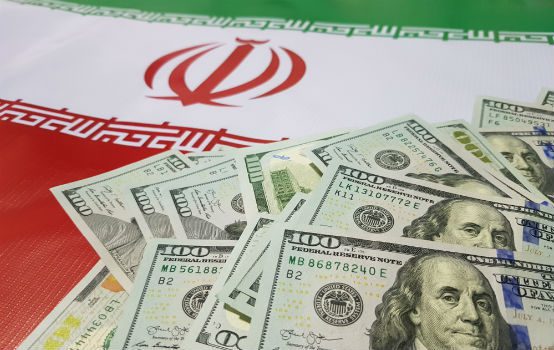Our Sanctions and Regime Change Addictions Are Out of Control

David Cohen and Zoe Weinberg explain why U.S. sanctions on Venezuela and Iran won’t achieve the administration’s desired goal of regime change, and they point out that the harm done to the civilian population can’t be justified under the circumstances:
But when broad-based economic sanctions are imposed in the quixotic pursuit of an impossible goal such as regime change, they are, in effect, purely punitive. The Venezuelan and Iranian regimes may well deserve to be punished for their deplorable conduct; their people do not.
Naturally, I agree with this, but I would go beyond it to say that broad-based economic sanctions are too clumsy and destructive to be worth using to achieve even more modest goals of changing regime behavior. Even supposedly “smart” sanctions in Syria have had the effect of scaring away potential investors because of the difficulties and risks involved, and they make the work of humanitarian organizations much more costly and complicated. Instead of being a scalpel, sanctions are more like pruning shears that are being used for delicate microsurgery, and when this causes massive injuries the sanctions advocates will point to the gushing blood and dismembered body parts as proof that the policy is “working.”
The reality is that sanctions usually don’t work to change regime behavior, especially when it comes to issues that touch on security interests, so it is hard to see how they are not almost always punitive. If they are primarily or purely punitive, it should follow that improvements in regime behavior will lead to an end to punishment, but that doesn’t necessarily happen, either. In practice, sanctions have tended to become an end in themselves, and the political will to lift them even when the targeted regime does something that Washington wants is so weak as to be non-existent most of the time. Instead, our legislators and policymakers pile on more and more on an ever-wider range of issues so that the targeted regime has less and less incentive to make any changes anywhere.
Sanctions might conceivably be a useful tool in rare cases if our policymakers were as eager to remove them when regime behavior improves as they were to impose them, but instead sanctions relief is a slow, drawn-out process in which the supposed beneficiaries of that relief may not see any benefit for many years after they have done what they were supposed to do. Reimposing U.S. sanctions on Iran despite Iranian compliance with the JCPOA is the most extreme example of this, since it actually undoes the promised sanctions relief and punishes Iran for our violations of an agreement. The U.S. excels at cruelly wielding an ineffective stick, and most of the time that is all that our government knows or wants to do. That makes it difficult for other governments to trust in promises of sanctions relief, and for that reason sanctions become even less effective than they might otherwise be.
As a rule, the U.S. shouldn’t be waging economic war on entire nations, and it shouldn’t be inflicting collective punishment on whole populations because of something that their political leaders have done. Especially in the Venezuelan and Iranian cases, the people who are suffering most as a result of the economic war being waged against them are the poorest and most vulnerable, and they are also the ones with no ability to influence a change in regime behavior even if they wanted to make such a change. If sanctions advocates hope to make these people so miserable that they revolt, they don’t understand that impoverished and starving people are unlikely to organize effective political opposition to overthrow an entrenched regime. Regime changers are actively weakening and attacking the very people that they expect to do their work for them, and they can’t grasp that by destroying their economy our government gives them ample reason to distrust and loathe us. Their chosen method of achieving regime change won’t achieve their goal, but both their goal and the means they have chosen to use to reach it are wrong and represent obnoxious interference in the affairs of another country. The Trump administration’s pursuit of regime change in Venezuela and Iran is failing, but the thing to remember it is something that should never have been tried in the first place.